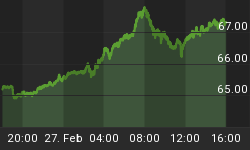The biggest danger to your wealth isn't a bubble in China or Europe - it's the IRS. Since 1987, top earners have been taxed between 28 percent and 39.6 percent, a relatively low range compared to the 50-percent-and-above rates for most of the century. However, with enormous annual deficits and Social Security lurking around the corner like a mugger, the future promises a return to old tax norms.
Historical income tax rates reveal grim days ahead for U.S. taxpayers. The federal income tax began innocently enough, in 1913, by imposing a 7 percent levy on the top bracket. But immediately with the start of WWI, rates exploded to 77 percent and continued at 73 percent even three years after the conflict. Then, taxes began slowly easing from 56 percent in 1922 to 24 percent just before the 1929 market crash.
The lower rates didn't last long, though. By 1932, three years into the Great Depression, rates rose to 63 percent, peaking at 94 percent in 1945. Even now, more than 80 years later, the income tax has never returned to the 1929 level.
Capital gains taxes aren't historically immune either. During the 1970s, the maximum rate on long-term gains reached almost 40 percent, according to the Tax Foundation. For the past 50 years, rates have hovered between 20 and 30 percent.
In the early years of the Great Depression, the U.S. government spent extravagantly without anyone paying the bill - just like today. Naturally, this situation could not last forever then, and it will not last forever now. Someone will have to pay the piper, and it won't be the bottom 50 percent of the population.
With the Bush tax cuts expiring this year, income taxes will rise from 35 to 39.6 percent for the top bracket. Though less likely, the expiration also threatens to raise capital gains taxes to 20 percent, with increased dividend taxes following suit. Next there are the new health care bill taxes, which will require an additional 16,000 IRS agents to enforce. Further, cap-and-trade won't make life any easier.
On the horizon, the outlook is even darker with the proposition of value-added taxes (VAT). VAT works like a backdoor sales tax. Essentially, every time a producer of goods purchases raw materials, he must pay a percentage tax. When the producer sells his goods to a wholesaler, the wholesaler pays another percentage.
It sounds bad already, but here's the worst part. Each company down the supply chain gets a tax discount based on the next company's tax payment. Through this method, every firm in the chain has an incentive to make sure that the next one pays the full amount. If they don't, then your company is left holding the bag.
In other words, the VAT makes every businessman an agent of the IRS. In the end, the higher cost of goods is passed down to consumers. However, unlike sales taxes, consumers will never see the bill directly on their receipts. This makes VAT far more politically efficient and insidious.
At this point, high taxes are the only way out of the long-term debt crisis - unless the Federal Reserve wants to see double-digit inflation. Mild Clinton-era taxes expected by most won't solve the problem. A 4 percent income tax hike is not going to repay trillions of dollars in debt. Betting on the bull market isn't a good plan either. America would need decades of unprecedented growth to escape unharmed. The U.S. needs more than a bull market - it needs a miracle.
If taxes are hiked to the stratosphere, a market recovery will do little for the wealthy. The fruits of a bull market will be difficult to enjoy with exorbitant taxes. For what does it profit a man to gain the whole world and be taxed on 80 percent of it? Even if market conditions become more favorable, the tax environment will drastically change soon.
In a sense, there is more opportunity in the middle of a low-tax recession than in a boom with cutthroat rates. Waiting for a stock market recovery is a losing decision tax-wise. The best way to grow your wealth is to earn it sooner rather than later.
Now is the moment to utilize excess funds wisely and invest to fill the gap for future shortfalls. While taxes are still low, a window of opportunity is open. There's no better time to find top-notch investments and make a profit while the going is good.
There's no doubt taxes are rising - whether it's through straightforward increases or stealthily through a VAT. The Casey Report keeps investors up to date on the big economic and market trends, so you can keep more of your hard-earned money. Try it now risk-free - with our deeply discounted Tax Day Deduction Deal and 3 full months to decide if it's for you. Plus, as a bonus gift, get two of our most popular precious metals and energy advisories... FREE for 1 year! Click here to learn more.















